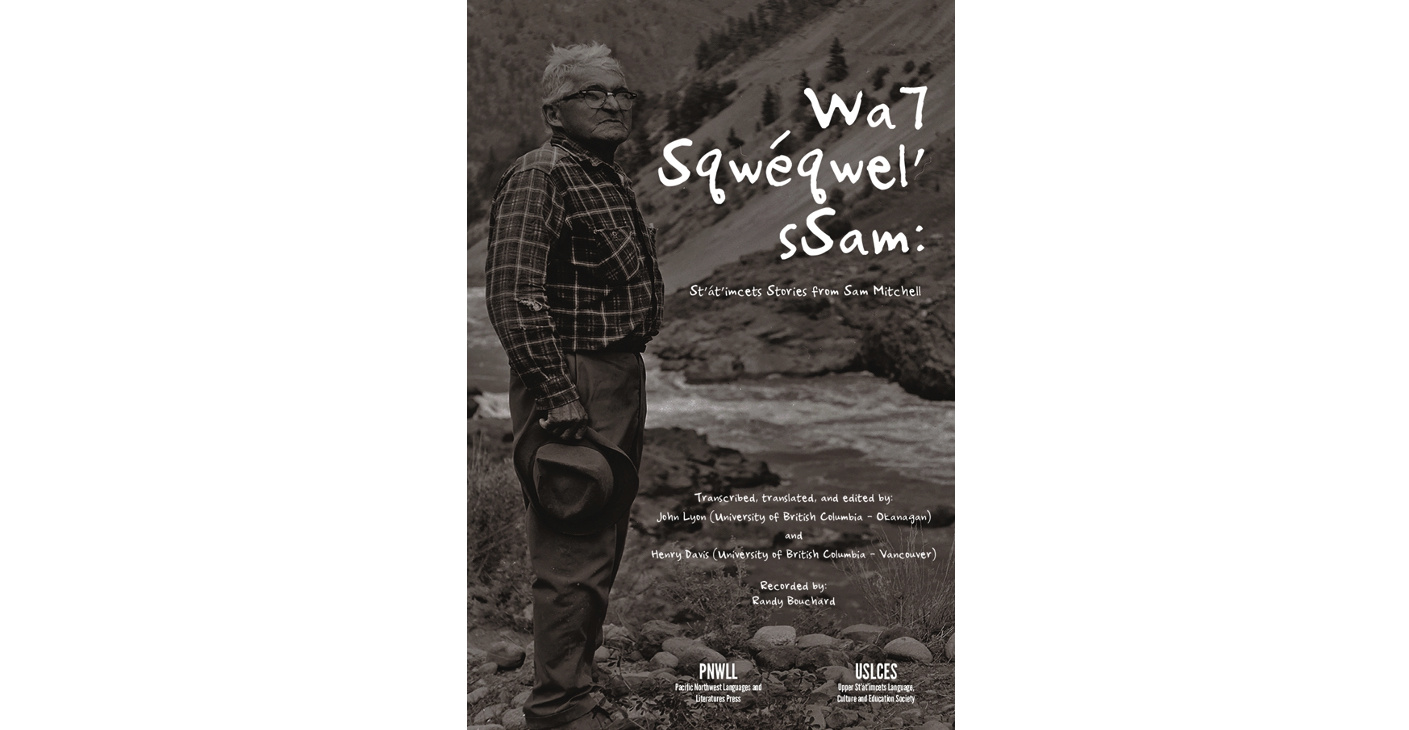Pacific Northwest Languages and Literatures (PNWLL) Press is taking a radical approach to the standard academic publishing process by co-publishing with Indigenous communities, while maintaining high production and editorial standards for the language documentation of Indigenous languages.
Dr. Henry Davis, Professor of Linguistics at UBC and President of PNWLL Press, expressed the dire need for Indigenous language revitalization, explaining that many Indigenous populations are looking at the end of a lifecycle for their languages.
“As far as first-language speakers are concerned, there are no First Nations languages in B.C. with more than a couple of hundred first-language speakers left,” said Davis. “As linguists, we’re working on the languages of this area to document as much as we possibly can. There is a new generation of younger people who are very much interested in maintaining their languages and moving them forward into the future, but they will not be first-language speakers. They’ll be second-language speakers, so there’s a huge need for advanced curriculum materials.”
PNWLL Press is a peer-reviewed, non-profit publishing organization run by graduate students from UBC’s Linguistics department with a mandate to provide language documentation for Indigenous languages which can be used for language revitalization and education as well as for academic purposes.
Marianne Huijsmans, Assistant Professor of Indigenous Language Sustainability at the University of Alberta, recently passed down her title as Managing Editor at PNWLL Press to the new editorial team after contributing to the press for seven years. She shared that working with PNWLL Press as a graduate student allowed her the opportunity to prioritize the importance of making language accessible.
“There’s so much value in this literature. The narratives are first presented in the original language, followed by the English translation. There’s literature in the language, which is something so special. It’s such an important thing going forward for language revitalization,” said Huijsmans. “And, the material itself is just so interesting. All these incredible narratives are by First Nations Elders.”
The publications are accessible to the local Indigenous communities through PNWLL Press’s reduced cost for print publications, audio recordings of the oral language and PDFs that can be downloaded for free from their website, and by co-publishing wherever possible.
“We try and co-publish with First Nations organizations wherever we can, and the reason for that is, it’s almost impossible to copyright language,“ said Davis. “One of the things we’re trying to do is give a sense of ownership to the language communities. This is their material that we worked on and it is such a privilege. As part of that privilege, we do the best to make it as available as possible to the communities we work with.”
PNWLL Press recently released Wa7 Sqwéqwel’ sSam: St’át’imcets stories from Sam Mitchell which features historical narratives, personal anecdotes and descriptions of traditional practices, as told by Sam Mitchell in St’át’imcets between 1968 and 1973. This volume is the third in a series of Upper St’át’imcets texts jointly published with the Upper St’át’imc Language, Culture and Education Society.
PNWLL Press is in the process of working on the fourth volume of the Upper St’át’imcets texts. The continuous stream of upcoming publications makes those in the linguistics and language revitalization communities very excited, including Huijsmans.
“It’s really a dream come true to see that there’s a lineup of volumes to be published,” said Huijsmans. “PNWLL continues to expand, and I hope First Nations and linguists in partnership with First Nations continue to discover the publications.”
Dr. John Lyon, Assistant Professor of Nsyilxcn Language Fluency at the University of British Columbia Okanagan, worked to transcribe and translate the narratives in Wa7 Sqwéqwel’ sSam: St’át’imcets stories from Sam Mitchell along with Dr. Henry Davis. He shared that PNWLL Press provides graduate students with invaluable opportunities to work with and learn from language in various forms.
“You don’t have to learn language simply by working with the written form. One of the best ways is to learn by listening through transcribing,” said Lyon. “It really attunes your ears to the sound of the language. You learn the prefixes, the suffixes, the parts that fit together, and what parts depend upon other parts. You absorb so much of that information by listening.”
Lyon shared that since PNWLL Press is volunteer run and is not-for-profit, they are looking to receive financial support both for students and members of the community who may work on these projects.
“It’s a great learning experience for graduate students, and for Indigenous community members that want to learn more about their languages and the editorial process,” said Lyon. “We’re looking at building more connections between PNWLL Press, which is housed at UBC Vancouver, community organizations, and UBC Okanagan so that the collections there are creating opportunities for people, especially Indigenous students, to learn their own language.”
The narratives and various publications that PNWLL Press publishes acts as an important part of Indigenous language reclamation and cultural identity.
“These languages are so important to the people and to the speech communities,“ said Davis. “Within communities where the language is traditionally spoken, even within those First Nations who have no first-language speakers left, they consider those languages their language and they still consider them an incredibly important part of their cultural revival and survival.”
To learn more about Pacific Northwest Language and Literatures Press, click here.
Written by Kelsea Franzke
